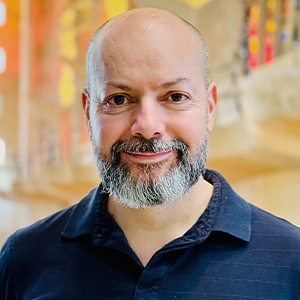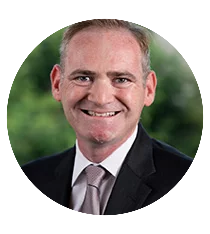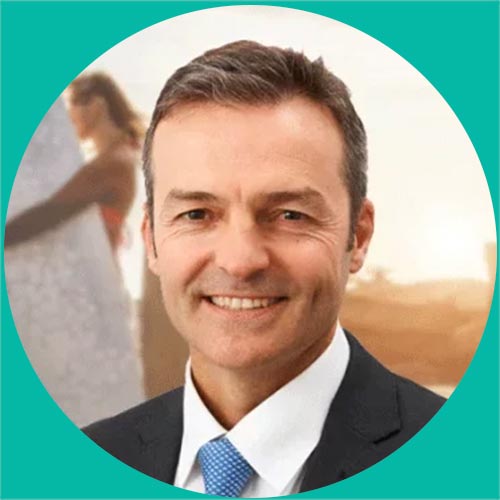How to use social media for doctors
“How do you use social media as a doctor?” This is a question that I hear every week.
I’m often asked, “How do I use Instagram? How do I use Facebook? Should I use Twitter? Should I use TikTok? How do I incorporate social media into my practice marketing?”
The question should be, “what is my social media strategy?” “What kind of results do I want to get?” And “who am I talking to?”
A lot of practices have multiple markets that they’re going after; there are your prospective patients and your referring practices. You need to choose a specific social media channel that works with specific avatars.
When should you start using social media for marketing?
How you use social media really starts with your goals. I’m going to suggest that social media is probably not the first place I would start. If you’re looking at your marketing and thinking, “There’s something broken. I’m not getting the results that I need”, social media is not usually the first place I would start.
Where does social media fit into the patient journey?
To put social media in its place, I would say it belongs further down in the sales process. It’s a useful tactic within a comprehensive marketing program, but we wouldn’t tend to focus on social media until after we’ve established awareness. Awareness comes from SEO and paid traffic.
Social media can generate awareness but it doesn’t happen with social media alone.
Let’s say somebody has come and interacted with your practice. They’ve maybe been on your website. Then, lo and behold, they find your little Instagram or Facebook icon on your website, and they click it to check out your social media.
Alternatively, they’ve used your service and have reached the review stage. Perhaps they’ve booked a consultation and are starting to look for social proof. That’s when they go to your social media.
So, how you use social media depends on how you have framed up the problem of what you want to achieve with it.
What kind of content does best on social media?
Where you’re going to get the most bang for your buck with social media is you’ve got to put across useful content. You’ve got to put across content that is what we call value in advance. What I mean by that is that you’re not always selling.
A lot of clinics make the mistake of constantly selling on social media. They’ll say, “I have a May promotion – get £500 pounds off LASIK”, or I “I’m hosting an information evening or webinar”.
That’s okay, but really what we’re looking to do is provide educational, fun and engaging content that shows you’re a real human. This is what social media is for.
Secondarily, I would try to capture your clinic team and patients doing interesting things. You should try to capture real-life moments in your clinic of people saying nice things about you. Nothing produced. Tag these people on social media, invite them to participate in contests and quizzes, and bring them into your social media in a fun way. This will help show your brand personality so that it can augment the main powerhouses of your campaign.
You should see social media as something that’s adjunct to the main aspects of your lead generation strategy.
How can you make your social media more SOCIAL?
So I think one of the things that people often miss about social media is the keyword in social media, which is social. That’s what makes it different from media that you perhaps go out and purchase or you broadcast.
The social aspect of social media suggests that it’s an environment in which conversations happen. And this is one of the biggest challenges that I find doctors and surgeons who want to be involved in social media have. They want to get the benefits of social media, but they don’t want to be social. If you want to get the benefits of social media, then you’ve got to be social.
What are the social media benefits Well, you might get more awareness or a little bit of engagement. People might even visit your website on the back of social media posts or make inquiries through messenger or other social media channels.
What often happens is, people look at social media, and they think of the media part. They start using it as an advertising channel and consistently sell themselves. “Look at this product”, look at this service”, “look how great we are”, “look at the new receptionist we hired”, “Isn’t she wonderful?” Unfortunately, people don’t care. They want to see themselves as the hero of their journey.
You need to be talking about your customers – with their permission. You need to share stories because stories are interesting as opposed to just advertisements. You want to be inviting conversation. You need to be a little bit controversial. You want to take a stand on things, and you want to say things that invite commentary.
If you just go out there and say things that any old advertisement would say, no one’s going to comment. So you want people to engage, you want people to comment, and then you need to engage with those comments. So you need to respond, and you need to elicit that conversation. That is what social media is all about.
Should YOU run social media marketing for your practice?
So here’s the thing. Suppose you’re not a social media citizen or don’t spend a lot of time on social media. In that case, you’re probably not the best person to run a social media campaign. You could, however, designate somebody who values the conversation. But to do that, you’ve got to have trust in that person. You’ve got to know that they’re going to be able to represent you appropriately, but at the same time, be fun, engaging and conversational.
How much website traffic really comes from social media?
If we look at all the analytical properties we govern – and we manage at least two dozen – two and a half per cent of people that visit a website are coming from social media. So I hate to break it to you, but it’s not a big deal. However, it can still be an opportunity. If you’re conversational, engaging and provide really good content, then you could really be a stand out there. And that’s a great place to be.
NOTE: The best way to answer that nagging question about practice growth or marketing or patient volume in the back of your mind is to book a free 15-minute compatibility call. Get some options and go away with a clear idea of what’s possible.
About the author

LiveseySolar
LiveseySolar’s mission is to double the size of 150 cataract and refractive surgery practices. Using our proven marketing frameworks and deep market knowledge, our customers can predictably and sustainably grow their practices so that they can enjoy a healthy balance between both worlds – a successful private practice and a happy life.
Related Posts
Meet our Co-Founders
We’re passionate about helping leaders of high-quality, growth-minded practice owners double their practice revenue

Rod Solar
Founder & Scalable Business Advisor
For over 20 years, I’ve helped ophthalmology entrepreneurs scale their private practices. I specialise in doubling revenue within three years by offering a proven framework, hands-on experience, and a team of experts who implement what works. We take the guesswork out of growth and scale, so you can focus on delivering exceptional patient care while maximising the value of your business.
LiveseySolar completely transformed the way we were approaching this… We’ve gone from having just the dream of having a practice to having a practice up and running with people making inquiries and booking for procedures… It’s extremely pleasing. We feel lucky we connected with LiveseySolar.
— Dr Matthew Russell, MBChB, FRANZCO, specialist ophthalmic surgeon and founder of VSON and OKKO

Laura Livesey
Founder & CEO
I’m the co-founder & CEO of LiveseySolar. I’ve developed powerful eye surgery marketing systems that increase patient volumes and profits for doctors, clinics, and hospitals, since 1997.
Rod and Laura know as much about marketing surgery to patients as I know about performing it. They are an expert in the field of laser eye surgery marketing. They know this industry inside out. I believe that they could help many companies in a variety of areas including marketing materials, sales training and marketing support for doctors.
— Prof. Dan Reinstein, MD MA FRSC DABO, founder of the London Vision Clinic, UK











